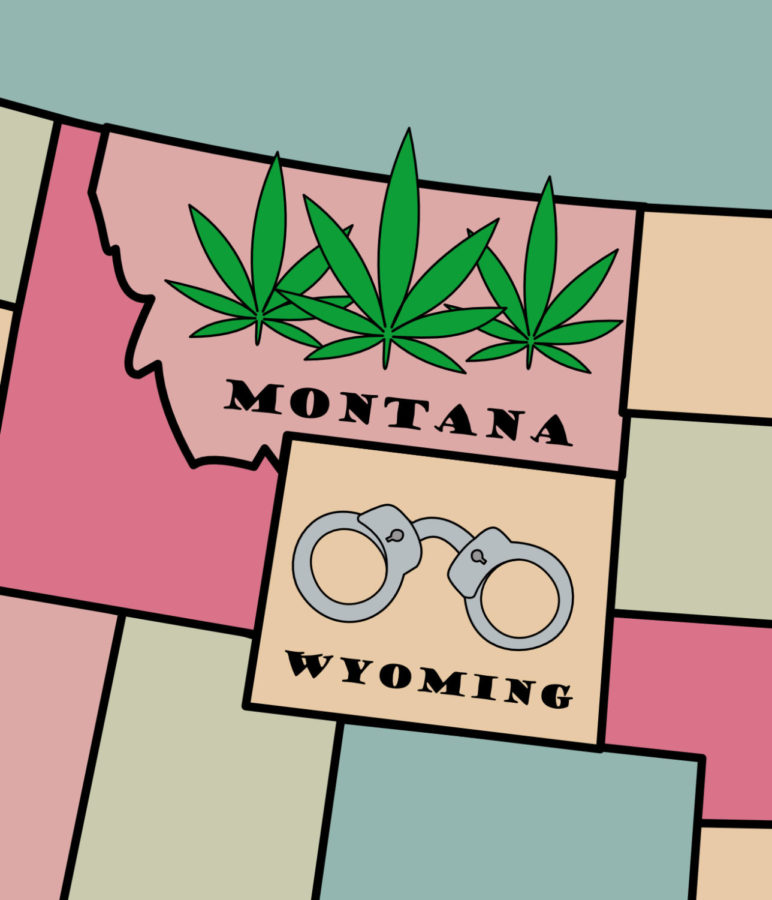WEED… be a better nation
September 29, 2021
Nine years ago, Washington and Colorado became the first states to legalize recreational use of cannabis. The recreational use of marijuana translates to using cannabis for personal satisfaction rather than for medical use. Depending on where you reside in the United States, the stigma behind marijuana use varies. In California, generally speaking, if you were to verbally divulge to another individual about the huge bong rip you took last night, the reaction you’d get would be quite different than if you were to tell someone from Tennessee. Why is that?
Well, legality status plays a large role in the sentiments regarding marijuana among Americans from different states. In a state like Tennessee where marijuana remains fully illegal, residents from that state are more likely to view explicit recreational use of marijuana as abnormal.
The varying legality statuses of marijuana is a prime example of federalism in our nation. States share power with the government to create unique legislation, hence, states can take different stances on marijuana legality. Because there is no federal law, states have opposing views on legalizing and decriminalizing marijuana. For example, in Wyoming, marijuana is fully illegal; if you travel north to the bordering state of Montana, marijuana is fully legal. In the words of Kid Cudi, that is quite “Day ‘N’ Night.” It is hard to grasp that if you are caught with marijuana, your future could unravel drastically depending on which state you reside in.
Over the last decade, our nation has taken drastic measures to destigmatize marijuana use and challenge its criminalization status. However, to be blunt, we are not quite there. So why should we legalize marijuana? First and foremost, criminalizing marijuana places a drain on the resources of correctional facilities.
In 2018, there were more than 663,000 arrests regarding marijuana. 608,000 of those arrests were simply due to marijuana possession. Along with that number, let’s factor in the cost of an arrest, which is around $1,000-$5,000. After crunching some numbers, we see that between $600,000,000 and $3,000,000,000 is spent on the arrests of recreational marijuana users per year (on average). Additionally, let’s consider the numerous health benefits of marijuana such as reduced anxiety, pain relief, preventing nausea caused by chemotherapy, relaxing tight muscles and stimulating appetite.
Public opinion regarding legalizing marijuana has increased year after year since 1972, finally breaking the 50 percent threshold in 2012. We, the people of the United States, have the power to fight for change and urge lawmakers to legalize marijuana.





















